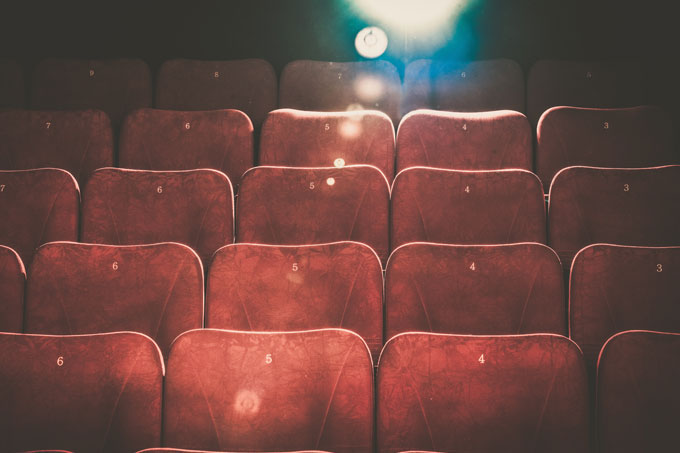Dr Ken Fox discusses the importance of cultural spaces and the impact of Covid-19 on cinemas.
The title of David Thomson’s book, The Big Screen: The Story of the movies and what they did to us, reveals the sense of pastness of movie’s influence. Cinema is in transition, perhaps it has always been in a state of transition, but the current transition seems more intense. In the era of Covid-19 cinema may well be morphing in to something else but before the pastness becomes its future this is a cri-de-coeur to encourage us all to return to cinema going when we are happy that it is safe to do so.
Cinemas will open again, some of them already have, and other sites, such as Dreamland in Margate are using their space imaginatively to provide a drive-in cinema experience. We may not be blessed with the weather for open air/drive-in cinema, but you should relish this opportunity, if you can get a ticket.
Socially distanced cinema attendance will be a different kind of experience, in some ways it might be a slightly better experience as the spaces between might ensure one does not have to listen to as much annoying chatter or popcorn munching. Cinemas tend to have low occupancy rates during the day so it may be that customers will be able to attend at times they would normally not choose to go.
With Covid-19 still on the rise in the US, there is likely to be further delays in the release of big screen blockbusters, such as Christopher Nolan’s Tenet and the new James Bond, No Time to Die. Studios might decide to release these much anticipated movies in different territories depending on the health and safety advice and guidance.
Like local and national theatres, I weep for the loss of spaces of entertainment where crowds can gather and join in the laughter, suspense, horror and collective joy of the cinema and theatre going experience.
The news of funding and grants for theatres, galleries and museums is good news, at last. Although this funding does not apply to cinemas unless perhaps the site has a dual function, it is a good news story that should be celebrated. Investment in our cultural life is an investment in our future, our economy, and our well-being. We all need the imaginative nourishment that cinema and theatre provide. After all, we are a species who have storytelling in our DNA. Whether it is stories around the campfire or the beams of light projecting our dreams onto a cinema screen, we love to be transported to other worlds, other places and other existences, I hope our human ingenuity, sense of socially distanced together-ness brings us back to the big screen and the proscenium arch.
A section in Salman Rushdie’s book of essays Imaginary Homelands (1992) summarises very effectively what my life-time of going to the pictures has enabled.
Rushdie notes the beauty of an image in Saul Bellow’s novel, The Dean’s December. As told by Rushdie: “The central character, Dean Corde, hears a dog barking wildly somewhere. He imagines that the barking is the dog’s protest against the limits of dog experience: ‘For God’s sake,’ the dog is saying, ‘open the universe a little more!’” According to Rushdie: “Bellow is not really talking about dogs, or not only about dogs, and I have the feeling that the dog’s rage, and its desire, is also mine, ours, everyone’s. ‘For God’s sake, open the universe a little more!’”
Going to the pictures for me was the equivalent of that dog’s bark as envisioned by Rushdie. It opened the universe a little more. I hope this is the case for you and if so, I hope to see you, socially distanced of course, at a cinema and/or theatre, very soon.
Dr Ken Fox is Principal Lecturer in the School of Creative Arts and Industries.
 Expert comment
Expert comment Jeanette Earl
Jeanette Earl 1360
1360


